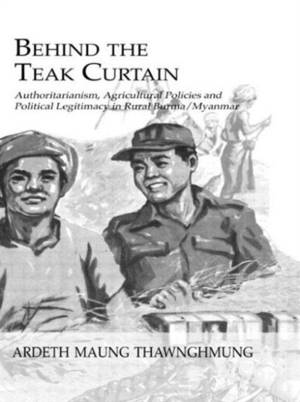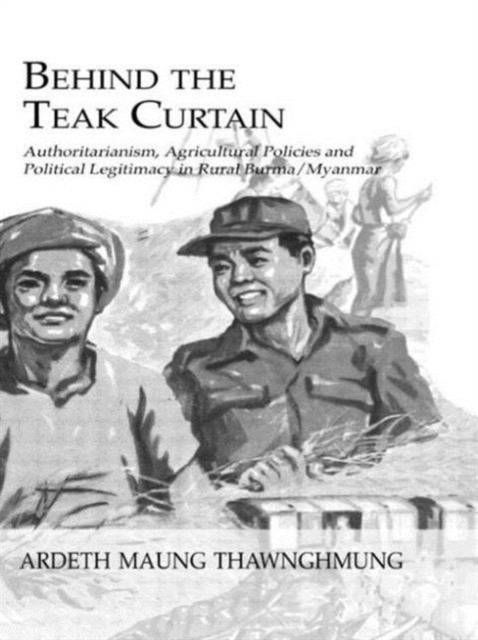
Je cadeautjes zeker op tijd in huis hebben voor de feestdagen? Kom langs in onze winkels en vind het perfecte geschenk!
- Afhalen na 1 uur in een winkel met voorraad
- Gratis thuislevering in België vanaf € 30
- Ruim aanbod met 7 miljoen producten
Je cadeautjes zeker op tijd in huis hebben voor de feestdagen? Kom langs in onze winkels en vind het perfecte geschenk!
- Afhalen na 1 uur in een winkel met voorraad
- Gratis thuislevering in België vanaf € 30
- Ruim aanbod met 7 miljoen producten
Zoeken
Behind the Teak Curtain
Authoritarianism, Agricultural Policies and Political Legitimacy in Rural Burma/Myanmar
Ardeth Maung Thawnghmung
Hardcover | Engels
€ 320,95
+ 641 punten
Omschrijving
First published in 2006. Behind the Teak Curtain, the first fieldwork-based study of Burmese rural politics and development, examines the specific circumstances under which one of the most repressive and authoritative governments in the world enjoys popularity in the countryside. The book analyzes four different agricultural policies that have been implemented under the Burmese military regime since 1978, and examines their consequential and varying impacts on rice farmers' attitudes toward central and local authorities. Behind the Teak Curtain provides first-hand information on Burmese rice farmers' conceptualization of political legitimacy, their political goals and priorities, and their relationships with central government authorities and local officials. This work seeks to challenge conventional studies on Burma, which focus on the behavior and actions of the military elite in Rangoon and treat the military regime as a unitary actor. It will be shown how and why the same autocratic and repressive military leaders who are perceived by a particular sector of the population as illegitimate may, at the same time, be favorably seen and accepted by another group of citizens. Finally, this study draws out the implications of these findings for other authoritarian governments in developing societies. It will demonstrate a more comprehensive foundation of legitimacy in authoritarian countries by highlighting the varying perceptions and attitudes in society toward central government authorities, toward local officials, and the different bases of legitimacy enjoyed by these two different levels of authority. Behind the Teak Curtain will interest anthropologists, sociologists, and historians interested in agrarian communities including peasant culture and political attitudes, particularly those with interest in Burma and Southeast Asia. This book is also targeted at agricultural economists and development theorists who are concerned with agricultural promotion and rural development. It sheds light on the problems inherent in the administrative structure of the military government, and how they hamper effective implementation of agricultural policies. Finally, this project will provide a comparative case study for those who study authoritarian regimes, military governments, and Third World countries.
Specificaties
Betrokkenen
- Auteur(s):
- Uitgeverij:
Inhoud
- Aantal bladzijden:
- 278
- Taal:
- Engels
Eigenschappen
- Productcode (EAN):
- 9780710309358
- Verschijningsdatum:
- 3/07/2006
- Uitvoering:
- Hardcover
- Formaat:
- Genaaid
- Afmetingen:
- 156 mm x 234 mm
- Gewicht:
- 566 g

Alleen bij Standaard Boekhandel
+ 641 punten op je klantenkaart van Standaard Boekhandel
Beoordelingen
We publiceren alleen reviews die voldoen aan de voorwaarden voor reviews. Bekijk onze voorwaarden voor reviews.









